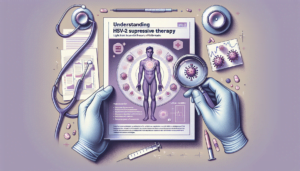Are you struggling with insulin resistance and wondering how to take charge of your own well-being? Look no further. In this article, we will explore the world of insulin resistance self-care and provide you with practical tips and advice to manage this condition effectively. Whether you are newly diagnosed or have been living with insulin resistance for years, this article aims to empower you with the knowledge and tools to improve your health and quality of life. So, let’s dive into the realm of self-care for insulin resistance and embark on this journey together.

Understanding Insulin Resistance
Insulin is a hormone produced by the pancreas that plays a crucial role in regulating blood sugar levels. When you eat food, especially carbohydrates, your blood sugar levels rise. In response, the pancreas releases insulin to help transport glucose from the bloodstream into cells, where it can be used for energy. Insulin also signals the liver to store excess glucose for later use.
However, in some individuals, the body’s cells become less responsive to the actions of insulin. This condition is known as insulin resistance. When you have insulin resistance, your body needs to produce higher levels of insulin to achieve the same effect of lowering blood sugar levels. Over time, the pancreas may struggle to keep up with this increased demand, leading to elevated blood sugar levels and potentially developing into type 2 diabetes if not managed properly.
Causes of Insulin Resistance
Insulin resistance can occur due to a combination of genetic and lifestyle factors. While genetic predisposition can play a role, lifestyle choices have a significant impact on the development of insulin resistance.
One of the leading causes is excess body weight, particularly when fat accumulates around the abdomen. This visceral fat releases molecules that can interfere with insulin signaling, leading to resistance. Physical inactivity is another major contributor. When you lead a sedentary lifestyle, your muscles become less responsive to insulin, increasing the risk of insulin resistance.
Furthermore, certain medical conditions, such as polycystic ovary syndrome (PCOS), can also contribute to insulin resistance. Hormonal imbalances associated with PCOS can affect insulin signaling, making it harder for cells to respond to the hormone effectively.
Risk factors for Insulin Resistance
While anyone can develop insulin resistance, certain risk factors increase the likelihood. One of the most influential factors is a family history of diabetes or insulin resistance. Genetics can play a significant role in determining an individual’s susceptibility to these conditions.
Obesity is another important risk factor. The more excess body weight you carry, especially around the abdomen, the higher your risk of developing insulin resistance. Adipose tissue secretes hormones and inflammatory molecules that can hinder insulin’s actions, contributing to resistance.
Additionally, leading a sedentary lifestyle increases the risk of insulin resistance. Inactivity reduces muscle mass and lowers overall insulin sensitivity, making it harder for your cells to respond to insulin.
Symptoms and Diagnosis
Insulin resistance often develops gradually and may not cause noticeable symptoms in the early stages. However, as the condition progresses, certain signs may arise. Common symptoms of insulin resistance include increased hunger, frequent urination, fatigue, and difficulty losing weight.
To diagnose insulin resistance, your healthcare provider may perform several tests. Fasting blood sugar levels, oral glucose tolerance tests, and hemoglobin A1C tests are commonly used to assess blood sugar control and evaluate insulin response. These tests measure your body’s ability to regulate blood sugar and can help in determining if you have insulin resistance.

Lifestyle Changes
Fortunately, certain lifestyle changes can significantly improve insulin sensitivity and manage insulin resistance effectively. Adopting a healthy diet, engaging in regular physical activity, and maintaining a healthy weight are key components of managing insulin resistance.
A healthy diet focused on nutrient-dense, whole foods is essential. Incorporate a variety of fruits, vegetables, lean proteins, and whole grains into your meals. Avoid sugary drinks, refined carbohydrates, and processed foods that can cause blood sugar spikes.
Regular physical activity is crucial for improving insulin sensitivity. Aim for at least 150 minutes of moderate-intensity aerobic exercise or 75 minutes of vigorous-intensity exercise per week. Additionally, incorporating strength training exercises into your routine helps build muscle mass and further enhances insulin sensitivity.
Maintaining a healthy weight is essential for managing insulin resistance. Losing excess body weight, particularly visceral fat, can significantly improve insulin sensitivity and reduce the risk of complications associated with insulin resistance.
Dietary Strategies
When it comes to dietary strategies for managing insulin resistance, a few key approaches can be tremendously beneficial. Balancing macronutrient intake, focusing on low glycemic index foods, and incorporating fiber-rich foods are effective strategies.
Balanced macronutrient intake involves consuming a combination of carbohydrates, proteins, and healthy fats in each meal. This approach helps stabilize blood sugar levels and reduces the risk of insulin spikes. Prioritize complex carbohydrates, such as whole grains and legumes, and choose lean protein sources like poultry, fish, and tofu. Healthy fats from sources like avocados, nuts, and olive oil can also be included.
Opting for low glycemic index foods can help manage insulin resistance. The glycemic index ranks foods based on how quickly they raise blood sugar levels. Foods with a lower glycemic index cause a slower and more controlled release of glucose into the bloodstream, preventing sharp spikes in blood sugar. Prioritize foods like whole grains, legumes, non-starchy vegetables, and most fruits.
Fiber-rich foods should also be emphasized in your diet. Fiber slows down digestion and the absorption of sugars, helping to regulate blood sugar levels. Incorporate whole grains, vegetables, fruits, and legumes into your meals to increase your fiber intake.
Exercise and Physical Activity
Regular physical activity is a powerful tool in managing insulin resistance and improving insulin sensitivity. Different types of exercises offer unique benefits, and finding activities you enjoy can contribute to long-term adherence.
Aerobic exercises like walking, jogging, swimming, and cycling are great for increasing cardiovascular fitness and burning calories. These activities help reduce overall body fat, including visceral fat, improving insulin sensitivity.
Resistance or strength training exercises are equally important. These exercises involve working against resistance, such as lifting weights or using resistance bands. Building muscle mass through resistance training enhances insulin sensitivity and metabolic health. Aim for two to three strength training sessions per week, targeting all major muscle groups.
Incorporating flexibility exercises like yoga or stretching is also beneficial for overall physical well-being. These activities enhance mobility and help reduce stress, promoting overall health and potentially contributing to improved insulin resistance.
Stress Management
Stress can have a significant impact on insulin sensitivity and blood sugar control. The body’s stress response triggers the release of stress hormones, which can interfere with insulin signaling and contribute to insulin resistance.
Engaging in stress reduction techniques can be incredibly helpful. Practices like mindfulness meditation, deep breathing exercises, and yoga can help manage stress levels and improve insulin sensitivity. Taking breaks throughout the day to relax and engage in activities you enjoy can also contribute to stress reduction.
Additionally, physical activity itself can act as a stress reliever. Engaging in regular exercise helps reduce stress hormones and releases feel-good endorphins, promoting a positive mood and overall well-being.
Sleep Health
Quality sleep is essential for overall health, and it plays a crucial role in managing insulin resistance. Inadequate sleep or poor sleep quality can disrupt hormone levels, affecting insulin sensitivity and blood sugar control.
Ensure you prioritize sleep and create a routine that promotes quality rest. Aim for seven to nine hours of uninterrupted sleep each night. Establish a relaxing bedtime routine, avoid stimulating activities and electronics before bed, and create a comfortable sleep environment. Maintaining a consistent sleep schedule can also help regulate your body’s internal clock and improve sleep quality.
Medication and Supplements
In some cases, lifestyle modifications alone may not be sufficient for managing insulin resistance. Prescription medications may be prescribed by your healthcare provider to help regulate blood sugar levels and improve insulin sensitivity. These medications can include metformin, thiazolidinediones, or glitazones, and others.
Furthermore, some individuals may opt for supplements and natural remedies to complement their self-care routine. While several supplements claim to improve insulin sensitivity, it is essential to consult with your healthcare provider before incorporating any supplements into your routine. Some commonly used supplements include alpha-lipoic acid, chromium, and cinnamon.
Remember, self-care is important, but it should always be done under the guidance and supervision of a healthcare professional.
Monitoring and Managing Blood Sugar Levels
Regular monitoring of blood sugar levels is crucial for individuals with insulin resistance. This allows for early intervention and adjustments to medications or lifestyle as necessary.
Keep a record of your blood sugar levels, noting the time of day and any associated symptoms. Regularly check your blood sugar using a glucometer, as advised by your healthcare provider. This information will help you and your healthcare team assess your progress and make any necessary adjustments to your treatment plan.
In some cases, glucose-lowering medications may be necessary to manage blood sugar levels effectively. These medications work by enhancing insulin production, improving the body’s response to insulin, or reducing glucose production by the liver. Your healthcare provider will determine if medication is necessary and prescribe the appropriate course of treatment.
In conclusion, understanding insulin resistance and its management is crucial for individuals looking to improve their health and prevent complications associated with insulin resistance. By adopting a healthy lifestyle, focusing on proper nutrition, engaging in regular physical activity, managing stress levels, prioritizing sleep, and working closely with healthcare providers, individuals can effectively manage insulin resistance and promote overall well-being. It’s never too late to take control of your health and make positive changes to live a healthier, more fulfilling life.


